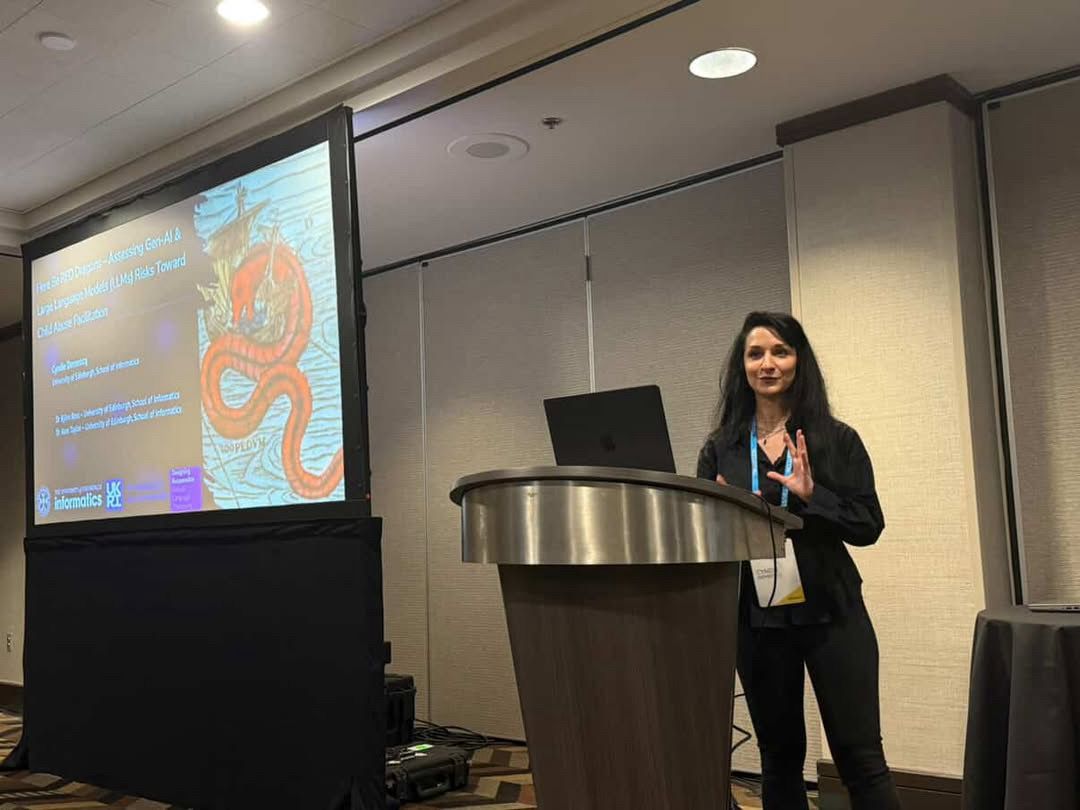We use this blog to highlight some of the work and activities of our CDT students. In this post, Cyndie Demeocq reflects on her experience sharing her research at TrustCon 2025.
Trust and Safety is an inherent part of developing safe and responsible NLP – and last week I got the chance to present in San Franscico at the TrustCon, the leading global conference dedicated to trust and safety where the atmosphere was open, engaged, and solutions-oriented.
A highlight of this trip was meeting Rebecca Portnoff, head of Data Science at Thorn, who leads efforts to develop machine learning tools to identify and disrupt child sexual abuse online. Her insights have been incredibly valuable for informing the next phase of this research, and it was a privilege to exchange perspectives in person.
In my talk, I presented research on the misuse of generative AI, particularly in the context of child abuse and online exploitation. As generative models evolve, so do the risks they pose. A growing area of AI safety – jailbreaking and red-teaming – aims to identify and exploit model weaknesses to test safeguards. Yet, these experiments are often disconnected from field realities and rarely involve practitioners.
My research, conducted with law enforcement experts from national and international bodies, explores how we can better test and evaluate generative models for risks specific to child abuse facilitation-ensuring safety measures are rooted in real-world harm.
It was a privilege to be followed by Riana Pfefferkorn, Policy Fellow at Stanford University, whose presentation perfectly complemented mine by addressing the legal and policy dimensions of generative AI risks.
I’m thankful for the support of Charlotte Willner and I’m excited to keep contributing to this space and to remain part of the TrustCon community – wherever in the world it meets next!
Thank you for their support to my suppervisors Dr Björn Ross, Dr Alex Taylor and well as Dr Marzieh Saeidi, Dr Animesh Prasad, Dr Ashleigh McFeeters, my amazing psychologists contributors Dr Karen Goodall, Anna Freuer and Maria-Christina Christodoulidou.

